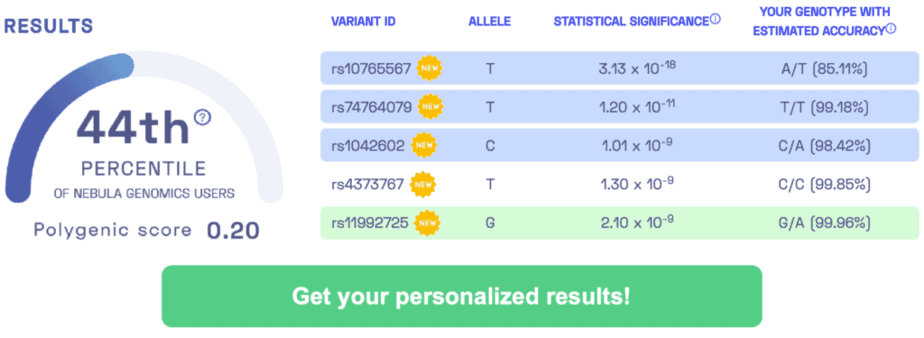SUMMARY: Discovery of 41 genetic risk variants associated with allergic rhinitis.
OVERVIEW: Achoo! When allergens cause inflammation in our sinuses, we begin to sneeze, get watery eyes, and runny noses. This condition, known as allergic rhinitis or hay fever, is the most common form of allergy, affecting 400 million people worldwide. To better understand the genetic factors that contribute to allergic rhinitis, this genome-wide association study examined over 200,000 individuals of European ancestry. Across the entire genome, researchers identified 41 genetic variants that correlate to a person’s risk of developing hay fever. Among these, 20 are newly-discovered. Many of the implicated genes play a role in the body’s immune response, including helping to recruit cells of the immune system and inflammation control.
DID YOU KNOW? The best method for controlling allergic rhinitis is to limit your exposure to the allergens that cause it. For example, an allergy to dust mites could be controlled through regular vacuuming and dusting, while an allergy to pollen might best be managed by limiting time outside. [SOURCE]
SAMPLE RESULTS: Learn more about the Nebula Research Library.

RHINITIS-ASSOCIATED VARIANTS: rs7717955, rs34004019, rs950881, rs5743618, rs1438673, rs63406760, rs7936323, rs28361986, rs2070902, rs2428494, rs1504215, rs35597970, rs11644510, rs12939457, rs2519093, rs12509403, rs148505069, rs2815765, rs13395467, rs111371454, rs9775039, rs9648346, rs2164068, rs35350651, rs2030519, rs62257549, rs10519067, rs11671925, rs11677002, rs11256017, rs17294280, rs138050288, rs2461475, rs7328203, rs7824993, rs6738964, rs9282864, rs9687749, rs61977073, rs6470578, rs3787184
ADDITIONAL RESOURCES:
Seasonal Allergies (Video)
Allergic Rhinitis
WEEKLY UPDATE: November 2, 2019
